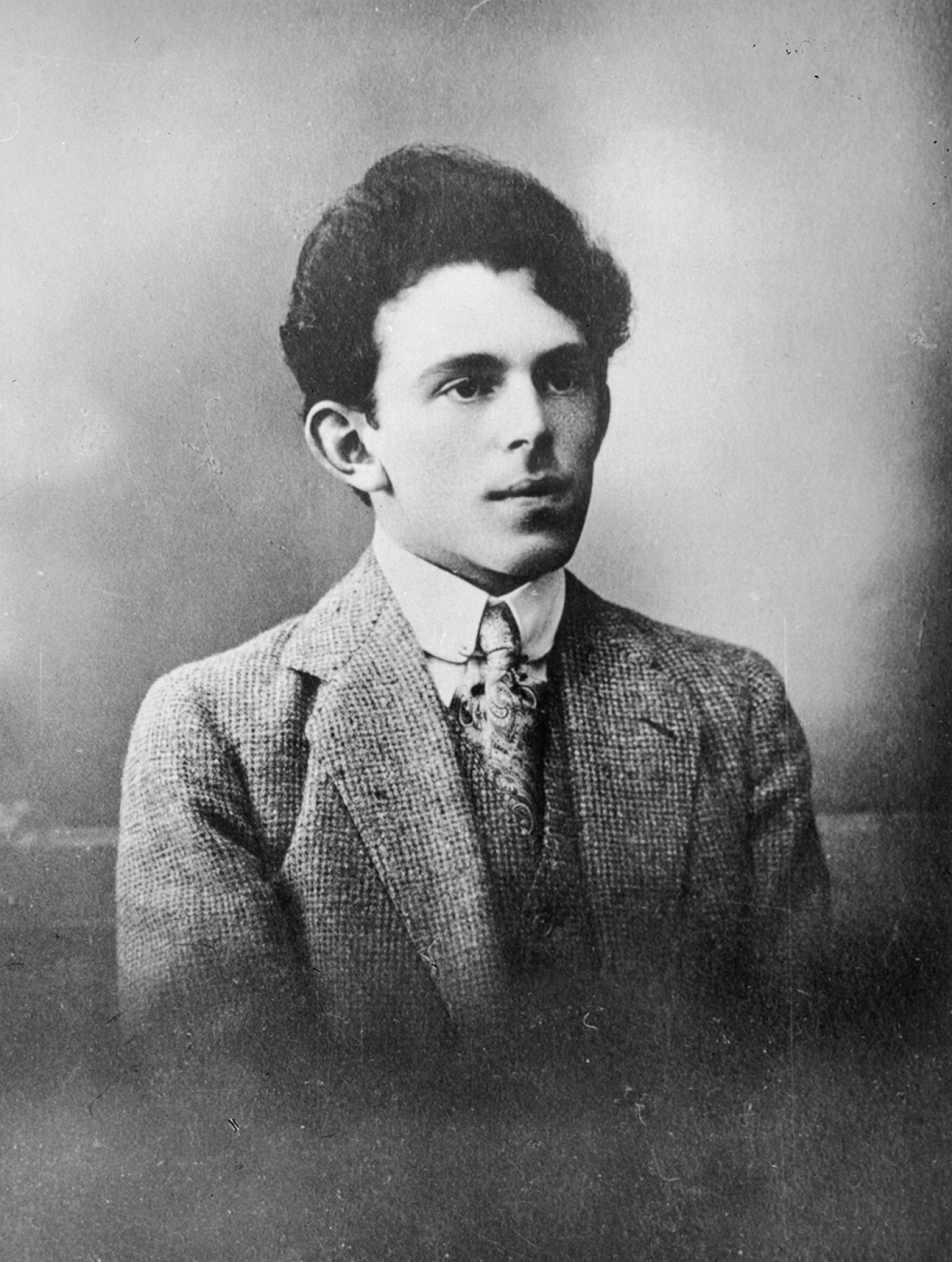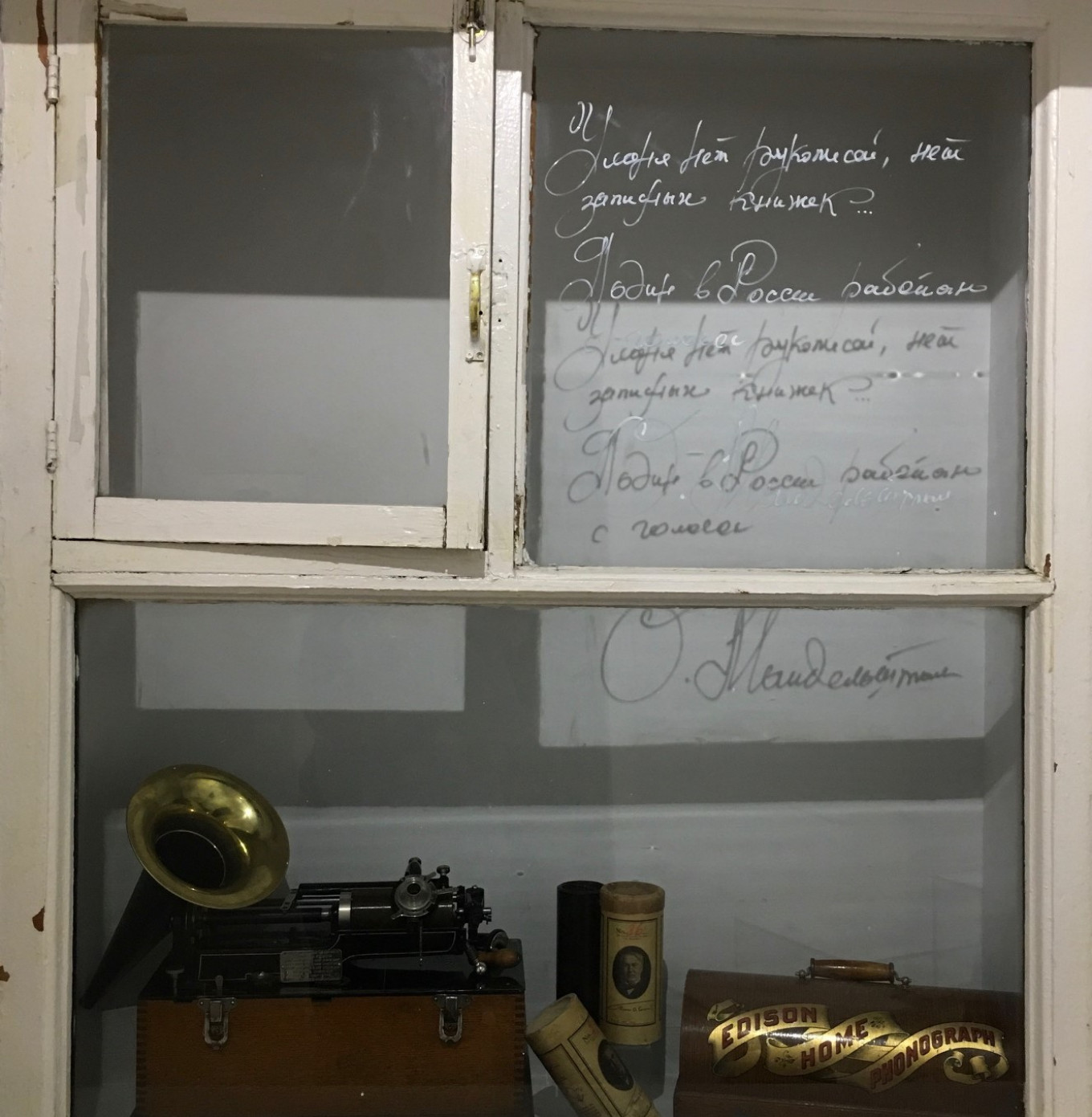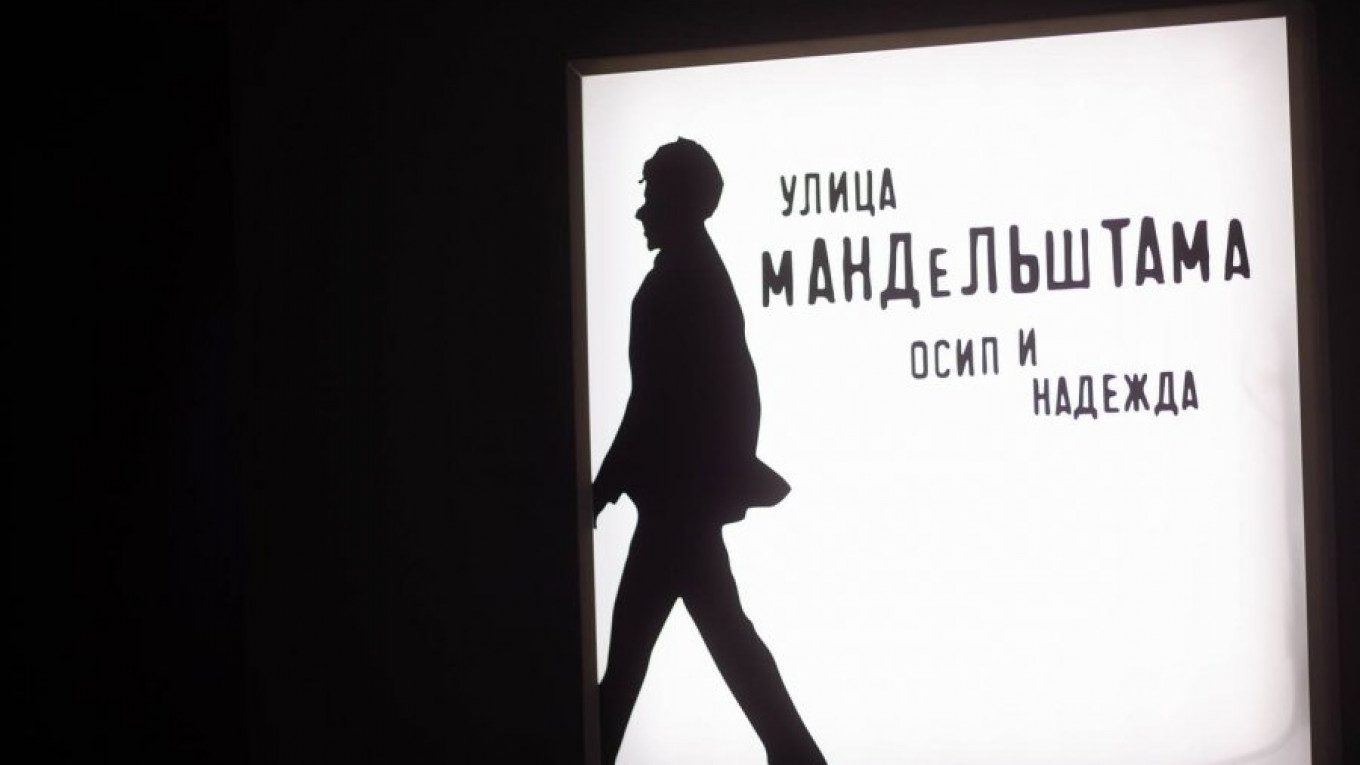This week the Dal State Literature Museum held the opening of a new project and exhibition. The museum is opening a new section on the history of 20th century literature, which they launched with an exhibition called Osip and Nadezhda Mandelshtam Street. The exhibition was made in collaboration with the Mandelshtam Center at the Higher School of Economics and funded by a grant from the Russian Jewish Congress.
To say the launch caught the public’s attention is to say nothing at all. The head of the museum, Dmitry Bak, opened the ceremony with the news that 200 people had written that they wished to attend. The staff hastily divided the people who had stated their intention to come into four groups of 50, which was then divided into smaller groups to visit the intimate Mandelshtam Street exhibition.

The ceremony was long, because so many people wished to speak, and excited, because people have waited so long for a proper memorial center for the Mandelshtams. The list of speakers was illustrious, and included the head of the Russian Jewish Congress, Yuri Kanner, the exhibition curators, the rector of the Pushkin Institute and head of the Tolstoy Museum, and the head of the Mandelshtam Center. Mandelshtam poems were recited to an audience that knew them by heart.
The star of the day was a 94-year-old woman named Varvara Shklovskaya-Kordi. The daughter of writer and literary critic Viktor Shklovsky and the artist Vasilisa Kordi, she cheerfully introduced herself as the only person alive today who served Osip Mandelshtam a bowl of soup (she was nine years old). A close friend of the Skhlovsky family, Mandelshtam often stayed in their apartment. Later he brought his young wife Nadezhda, who also became a close family friend. Later Skhlovskaya-Kordi showed the small couch that Mandelshtam had somehow slept on and the desk where her family kept the poet’s papers during what Nadezhda Mandelshtam called the “dangerous years.”

The exhibition is, indeed, quite small; it’s hard to make an exhibition of the life of a couple so poor they owned virtually nothing. In three rooms you can see a few objects associated with the Mandelshtams, samizdat and first editions of his poetry and her memoirs, and you can hear several recordings of him and others reading his poetry that were restored for the exhibit, as well as watch a short films that are a mix of documentary and original clips.
The curators called this a “pilot” exhibition. Soon Mikhail Bulgakov and Andrei Platonov will join the Mandelshtams on this street of 20th century writers.
You can find more information in Russian about the exhibition here.
Below is an excerpt of Varvara Shklovskaya-Kordi at the opening.
A Message from The Moscow Times:
Dear readers,
We are facing unprecedented challenges. Russia's Prosecutor General's Office has designated The Moscow Times as an "undesirable" organization, criminalizing our work and putting our staff at risk of prosecution. This follows our earlier unjust labeling as a "foreign agent."
These actions are direct attempts to silence independent journalism in Russia. The authorities claim our work "discredits the decisions of the Russian leadership." We see things differently: we strive to provide accurate, unbiased reporting on Russia.
We, the journalists of The Moscow Times, refuse to be silenced. But to continue our work, we need your help.
Your support, no matter how small, makes a world of difference. If you can, please support us monthly starting from just $2. It's quick to set up, and every contribution makes a significant impact.
By supporting The Moscow Times, you're defending open, independent journalism in the face of repression. Thank you for standing with us.
Remind me later.







